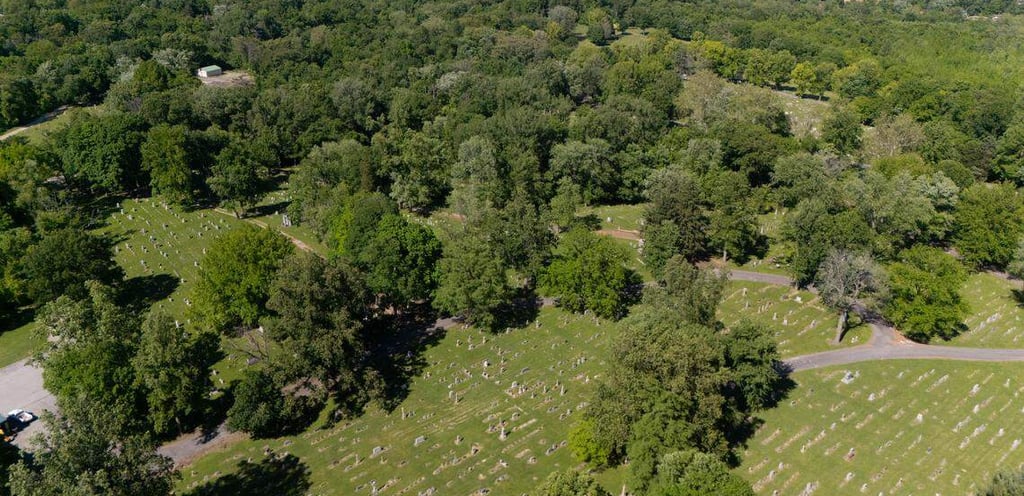Belleville Solar Farm Plan Draws Criticism from Local Residents
Belleville residents protest a proposed solar farm at Mount Hope Cemetery, raising concerns over transparency, history, and land use.
8/7/20253 min read
In the quiet and historic city of Belleville, Illinois, a proposed community solar farm is causing a stir among local residents. The plan, which involves installing a solar energy facility at Mount Hope Cemetery, has triggered public backlash over concerns about transparency, land use, and heritage preservation.
While renewable energy projects are often welcomed with open arms, this one has sparked strong opposition. Residents believe the city has not done enough to inform the public or consider alternative locations. With emotions running high and questions left unanswered, the solar farm has become one of Belleville’s most talked-about topics this summer.
What Is the Belleville Solar Farm Project?
The City of Belleville is considering a plan to lease part of the land at Mount Hope Cemetery to a developer for the installation of a community solar farm. The site would feature solar panels spread across several acres and would generate clean energy to power local homes and businesses. City officials argue that the project could bring in revenue, support green energy goals, and repurpose underutilized land.
However, the idea of placing a solar farm on cemetery property has raised eyebrows and led to passionate opposition from residents and local organizations.
Residents Speak Out
At a recent city council meeting, concerned citizens gathered to express their frustrations and demand answers. Many said they were shocked to learn about the plan from social media or word of mouth rather than from official city communications. The lack of transparency is at the heart of the issue for many.
"I just think it's incredibly disrespectful to even consider putting solar panels on sacred ground," said one resident during the public comment period. "This land should be honored, not commercialized."
Others voiced fears about long-term environmental impacts, the visual appearance of the site, and the precedent it could set for similar projects in the future. Several community members questioned why the city did not explore other less sensitive locations for the solar panels.
Historic and Emotional Concerns
Mount Hope Cemetery is not just any piece of land. It is a site of deep historical and emotional significance for many families in Belleville. Generations of residents have loved ones buried there, and the thought of altering the landscape for a solar project feels like a betrayal to some.
Preservationists are particularly worried. The cemetery has graves dating back over a century, and changing the character of the land could impact its historical value. They argue that renewable energy is important, but it should not come at the expense of community memory and cultural identity.
City Officials Defend the Plan
In response to the backlash, city leaders have attempted to clarify their intentions. They say the solar farm would only use a portion of the property that is not currently occupied by graves and would be designed with sensitivity in mind. According to them, the revenue generated from the lease could help fund cemetery upkeep and other public services.
Mayor Patty Gregory acknowledged that communication could have been better but stressed that the project is still in early stages and no final decisions have been made.
"We are listening to the concerns," she said. "And we want to find the best path forward that benefits both the community and our environment."
Balancing Progress and Preservation
The Belleville solar farm debate highlights a common challenge faced by cities across the country. How do communities embrace clean energy and economic opportunity while also protecting the past and respecting public sentiment?
It’s clear that the demand for renewable energy is growing, and cities like Belleville are looking for creative ways to meet those goals. But any plan that involves sensitive locations like cemeteries must be handled with care and include meaningful public input from the start.
Community members want to be part of the process, not sidelined. They want to feel heard, not informed after the fact.
What Happens Next?
As of now, the solar farm project is still under review. City officials have promised to hold additional public meetings and release more detailed information in the coming weeks. Residents are encouraged to attend and voice their opinions as Belleville continues to explore its options.
Some citizens have already started organizing petitions and online campaigns to stop the project altogether, while others are calling for compromises, such as moving the project to another site or creating visual buffers around the panels.
What remains to be seen is whether Belleville’s leadership will find a solution that satisfies both its vision for a greener future and its obligation to respect the community’s past.
Final Thoughts
Belleville’s solar farm controversy is more than a local planning issue. It is a case study in civic engagement, public trust, and the delicate balance between progress and tradition. The outcome of this debate may influence how other towns in Illinois and beyond approach similar projects in the future.
As residents continue to raise their voices and city leaders weigh their options, one thing is clear — this is a conversation Belleville will not forget anytime soon.

